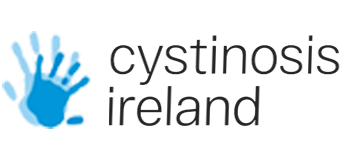The logistics of Genome-wide Genotyping and Whole Exome Sequencing of all available Cystinosis Patients Globally: The Why, the How, and the Who.
Presented by Dr Brendan Keating, Penn Transplant Institute, University of Pennsylvania, Philadelphia, PA, USA, on behalf of the International Genetics & Translational Research in Transplantation Network (iGeneTRAiN)
Lay Summary: Transplantation is often the only available treatment for patients with significant congenital disease and/or end-stage renal disease failure including Cystinosis. Genome-wide Genotyping, HLA and Exome Sequencing (which map the spectrum of common and rare genetics variants across the genome) have strong utility in dissecting the genetic architecture of primary kidney disease and their modifier genes (which may worsen or be protective of Cystinosis symptoms), post-transplant complications, allogenicity (the impact of the donor and patients genomes), and pharmacogenomics (how common genetic variants in the genes that metabolize and process medications – many of which have profound impact on side-effects in some patients).
The International Genetics & Translational Research in Transplantation Network (iGeneTRAiN), is an International consortium with genotyping of > 780,000 genome-wide variants performed on 52,400 solid-organ DNA samples which encompasses 32 kidney transplant cohorts, collected from 1989 to present. iGeneTRAiN is statistically powered to evaluate the contributions of both rare and common genetic variants to end-stage renal disease (ESRD) and post-transplant outcomes. We outline a pipeline to define the common and rare variants (directly or indirectly measuring ~15 million positions across each human genome) in all Cystinosis patients that can be collected globally through a variety of methods, and to analyze these datasets for modifier genes, post-transplant complications, allogenicity and pharmacogenomics.
Purpose of the Study: Recently we have instigated a collaboration with Industry to perform additional GWG, and HLA and whole-exome sequencing in >45,000 of wait-list and transplant DNAs. This project includes the discretion to enrich heavily for rare diseases to look for modifier genes, additional drug-targets and to assess the pharmacogenomics underpinnings of polypharmacy outcomes post-transplant (defined as taking 5 or more medications). While cystinosis is often described as having a prevalence of 1-2 cases per 100,000 live births in developed world, estimates globally are thought to be only >5K to 7K. Three major ‘pockets’ of biobanked DNAs exist: in Bethesda, USA (which have already been subjected to WES); in Canada & Belgium with > 1,200 cases. There are additional cases evident in iGeneTRAiN and within >1 million exomes sequenced by Pharma, which are linked to electronic medical records, there is good correlation with ICD-10 code E72.01 with disease status. Furthermore, patient-advocacy groups have recently turned to clinical facing patient portals to enrich for collation of DNA and linked phenotypic datasets e.g. age of disease onset & severity, eGFR decline etc.
Discussion: In essence all of the pieces are in place to collate, sequence and analyze >5,000 Cystinosis patients which could yield significant insight into modifier gene effects which exacerbate some known Cystinosis mutations, while delay onset in other patients whose mutations typically manifest in early clinical disease progression. The more major considerations needed though are the infrastructure(s) and governance of how such datasets are managed to maximize the value of such knowledge to the Cystinosis community, while protecting the patient’s privacy, yet still ensuring that the stakeholders of these datasets (including the families) are all part of the process. We will present potential mechanisms to achieve these goals.
